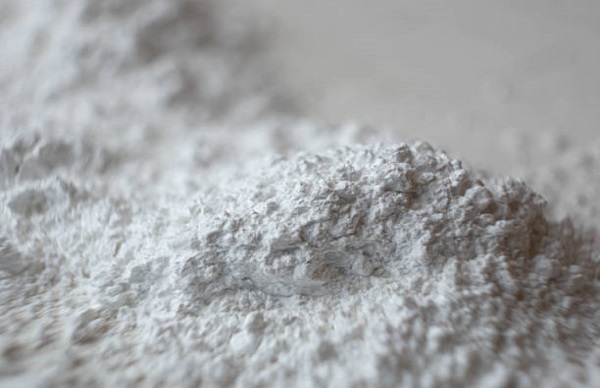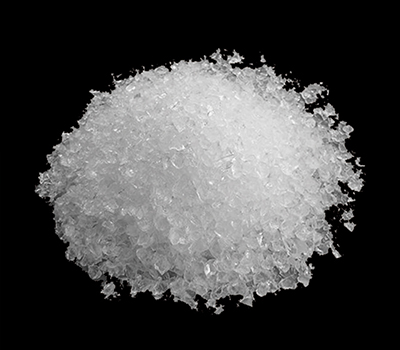
A Comprehensive Guide to pH Levels in Industrial Applications
October 8, 2024
The Role of Calcium Carbonate in Geological Processes
October 8, 2024Calcium Carbonate Powder is a versatile compound that occurs naturally in various forms, each with its unique properties and applications. It plays a crucial role in several industries, including construction, agriculture, food, pharmaceuticals, and cosmetics. This article explores the different forms of calcium carbonate, highlighting their characteristics, uses, and benefits.
| PHYSICAL CHARACTERISTICS | |
|---|---|
| Chemical Classification | Carbonate |
| Color | White |
| Streak | White |
| Diaphaneity | Transparent to translucent |
| Specific Gravity | 2.7 |
| CHEMICAL CHARACTERISTICS | |
|---|---|
| Melting Point | 825°C |
| Refractive | 1.59 |
| Solubility | 0.00015 mol/l |

1. Ground Calcium Carbonate (GCC)
Ground Calcium Carbonate, often referred to as GCC, is produced by crushing and grinding limestone or marble. This form of calcium carbonate is finely milled to obtain a specific particle size, making it suitable for various applications.
Characteristics:
- Particle Size: Typically ranges from a few microns to several hundred microns.
- Purity: GCC usually contains a high percentage of calcium carbonate (over 90%).
- Appearance: It is a white, odorless powder.
Applications:
- Construction: GCC is widely used as a filler in the manufacturing of cement and concrete.
- Plastics: GCC is added to plastics as a filler to reduce costs and improve the physical properties of the final product.
- Paints and Coatings: It is utilized in the paint industry to improve opacity, brightness, and finish.
2. Precipitated Calcium Carbonate (PCC)
Precipitated Calcium Carbonate is a synthetic form of calcium carbonate produced by the carbonation of calcium hydroxide. This process allows for the control of particle size and morphology, resulting in a product with specific properties.
Characteristics:
- Particle Size: Can be tailored to specific requirements, often resulting in smaller particles compared to GCC.
- Purity: Typically contains more than 99% calcium carbonate.
- Appearance: PCC is usually a fine, white powder.
Applications:
- Food Industry: PCC is used as a food additive and calcium fortification in various products.
- Pharmaceuticals: It serves as an excipient in tablets and other formulations.
- Cosmetics: PCC is found in various cosmetic products as a bulking agent and opacifier.
3. Calcium Carbonate Limestone (CaCO₃)
Limestone is a naturally occurring form of calcium carbonate that is quarried from the earth. It consists of a mixture of calcium carbonate and other minerals.
Characteristics:
- Composition: Composed primarily of calcium carbonate, along with impurities like clay, sand, or iron oxide.
- Appearance: Typically appears as a sedimentary rock, which can be light to dark grey.
Applications:
- Construction: Used in the production of lime for construction, as well as an aggregate in concrete.
- Agriculture: Acts as a soil conditioner and pH adjuster, helping to neutralize acidic soils.
- Environmental Uses: Employed in water treatment processes to neutralize acidic water and improve water quality.
4. Calcium Carbonate Granules
Calcium carbonate granules are larger, more coarse forms of calcium carbonate that are produced through agglomeration or granulation processes. These granules are typically used in specific applications where a slow-release form is beneficial.
Characteristics:
- Size: Larger than powder forms, usually ranging from a few millimeters to a centimeter.
- Durability: Granules are more resistant to breakdown compared to powdered forms.
Applications:
- Agricultural Fertilizers: Used as a slow-release source of calcium for crops, improving soil health and nutrient availability.
- Animal Feed: Calcium carbonate granules are added to animal feed as a calcium supplement.
5. Calcium Carbonate Capsules and Tablets
In the pharmaceutical and dietary supplement industries, calcium carbonate is often processed into capsules or tablets for easy consumption. This form is designed to provide a convenient source of calcium for individuals looking to supplement their diet.
Characteristics:
- Formulation: Calcium carbonate is combined with other ingredients to enhance absorption and efficacy.
- Dosage: Available in various strengths, allowing for customized supplementation.
Applications:
- Dietary Supplements: Commonly used to prevent or treat calcium deficiencies in adults and children.
- Pharmaceuticals: Used in antacids to relieve heartburn and indigestion.
Conclusion
Calcium carbonate exists in various forms, each serving distinct purposes across multiple industries. From ground and precipitated forms to granules and tablet formulations, its versatility makes it an essential compound in everyday applications. Understanding the different forms of calcium carbonate can help industries choose the most suitable type for their specific needs. For reliable sources of high-quality & Calcium Carbonate Powder Manufacturers in Indiae, consider partnering with industry leaders like Sudarshan Group, which offers a range of products tailored to diverse applications.



